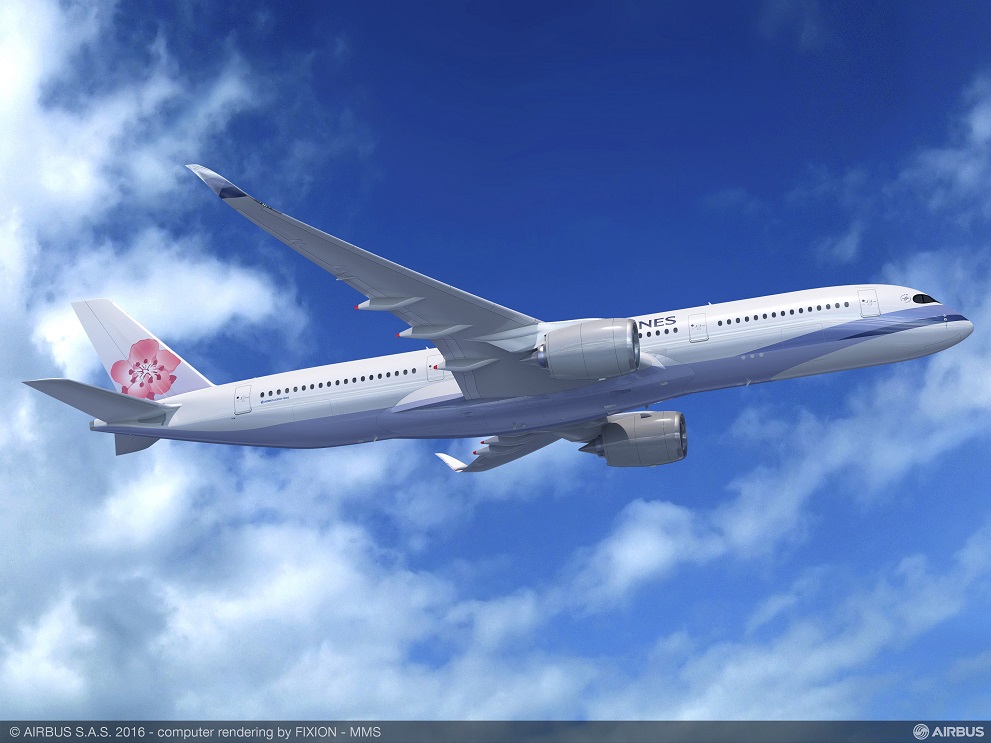17 Jun 2023
China Airlines Announces Plan to Introduce One A350-900 Passenger Aircraft This Year
China Airlines, the Taiwan-based carrier, announced that it plans to introduce one A350-900 leased aircraft this year. The aircraft will be delivered in Q4 and enter service in 2024 Q1. The new arrival will join the existing fleets of fourteen A350-900 and ten 777-300ER passenger aircraft as the mainstays of the North American and European networks in preparation for the vibrant post-COVID travel market.
An extraordinary meeting of the China Airlines Board of Directors approved the leasing of two Airbus A350-900 aircraft. One aircraft is already confirmed while the other is under active consideration and will depend on the state of the aircraft leasing market. Their acquisition serves to further strengthen the China Airlines fleet.
China Airlines currently operates 87 passenger and cargo aircraft including 66 passenger aircraft (A321neo, A350-900, 777-300ER, A330-300, 737-800, and 737-800), and 21 freighters (777F and 747-400F). A further twenty-four 787 passenger aircraft are now on order with deliveries to commence in 2025. The new aircraft will allow for more flexible and agile aircraft dispatching in the future. The next-generation long-haul fleets of A350-900 and 777-300ER are configured for three cabin classes, Premium Business, Premium Economy, and Economy. Travelers can choose from the range of product options on offer for a comfortable and high-quality flying experience.
China Airlines is committed to the development of ESG (Environment, Society, Corporate Governance) and has introduced a new generation of green aircraft in recent years. New, more energy-efficient aerospace technology, combined with lightweight materials create significant improvements in fuel-efficiency reducing carbon emissions. China Airlines has set progressive targets for the use of Sustainable Aviation Fuel (SAF). The airline is aiming to use up to 2% SAF throughout its fleet by 2025, and up to 5% by 2050 with the goal of achieving Net Zero by 2050.
